Hi-van is supported by its audience. When you purchase using our links, we may earn an affiliate commission (no added cost to you). Learn more
RV camping is a delightful way to experience the wild outdoors. RV parks are available as rustic camping grounds with limited utility hookups, zero hookups, or luxury resorts with all types of amenities. So, when camping in a state park, for instance, how do you keep campfire smoke out of your RV?
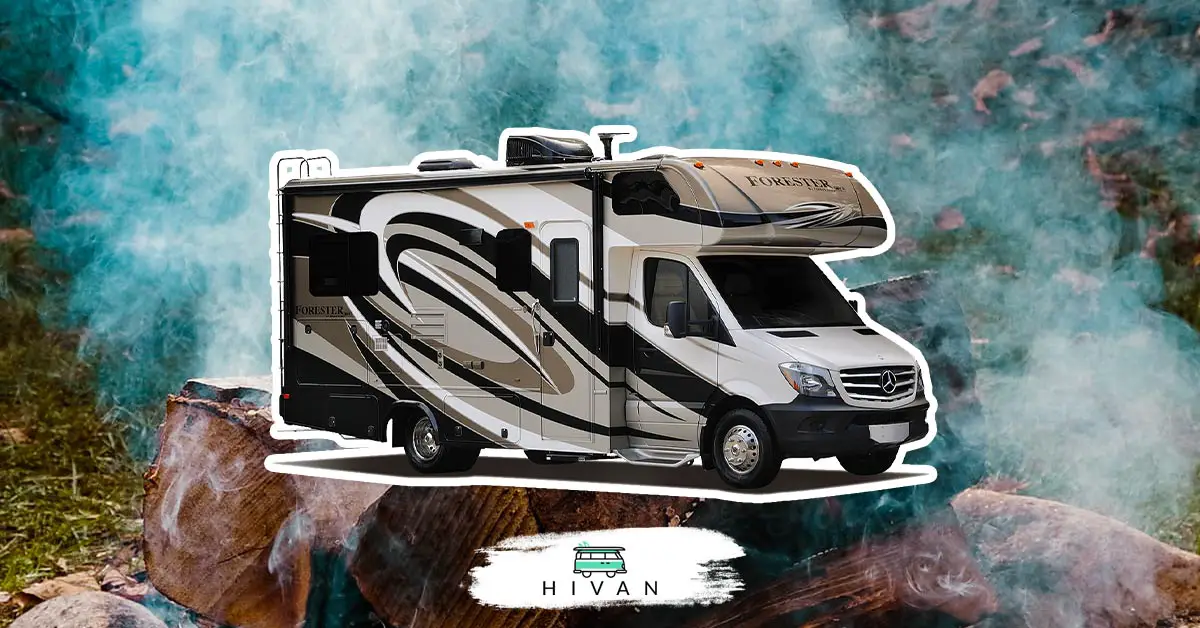
Here’s how to keep campfire smoke out of an RV:
- Park as far away from the campfire as possible.
- Keep the RV doors and windows closed.
- Look for an upwind camping spot.
- Use innovative firepits.
- Consider using a commercial fire log.
- Stop your campfire from producing smoke.
- Choose camping grounds that don’t allow wood fires.
A great campfire forms part of the camping experience, but when smoke gets into your living space or sleeping quarters, it can get pretty uncomfortable. Read on to learn some helpful ways to keep annoying campfire smoke out of your trailer.
1. Park As Far Away From the Campfire As Possible
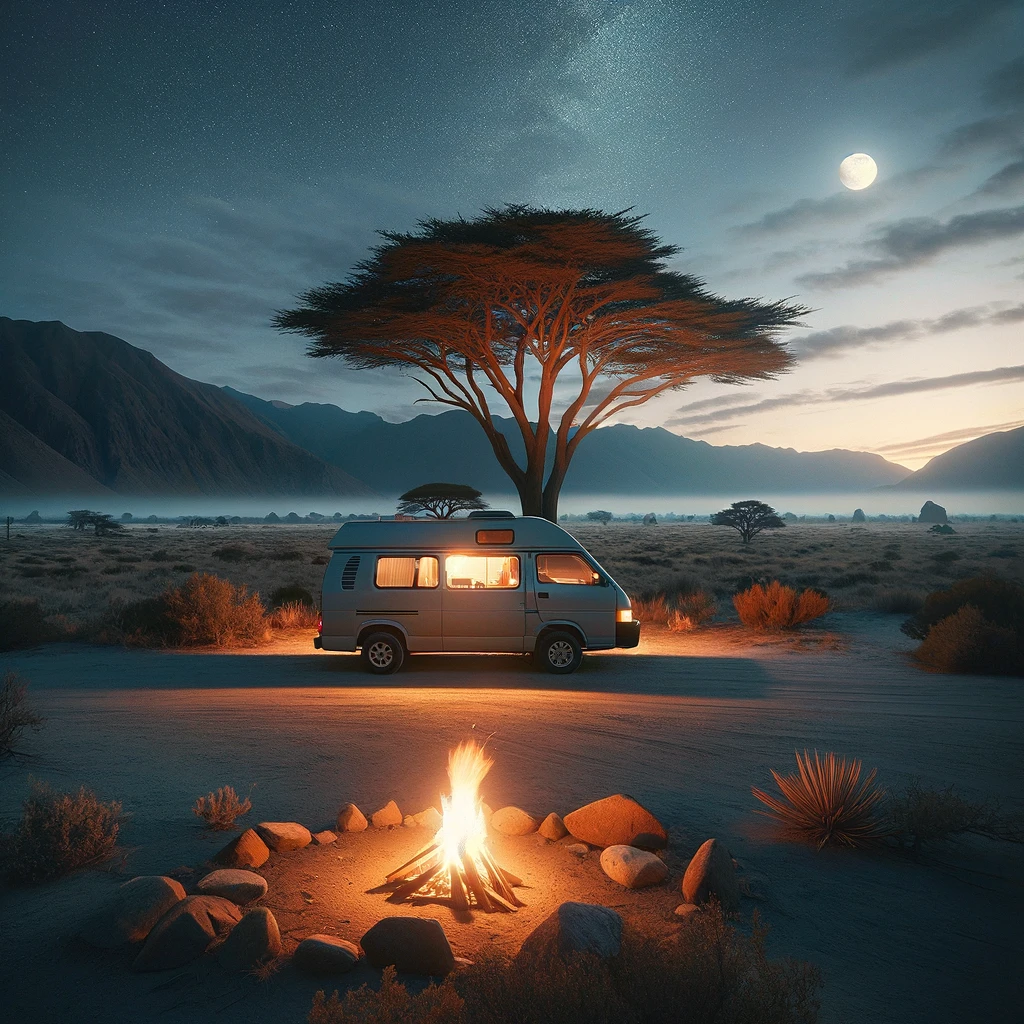
Setting up a campfire next to your RV isn’t a very good idea.
Smoke can get inside the RV, causing your eyes to burn, making breathing difficult, aggravating allergies, or an existing sinus condition. To avoid campfire smoke getting inside your RV, park as far away from the fire as you can.
Try to maintain a distance of 15’ (4.57 m) from a campfire whenever possible.
Once the smoke enters your vehicle, it turns into a stale, foul-smelling odor that permeates the interior, soaking into components such as pillows, mattresses, curtains, and seats. What’s more, getting the smoky smell out of your camper and interior components can be somewhat challenging.
2. Keep the RV Doors and Windows Closed
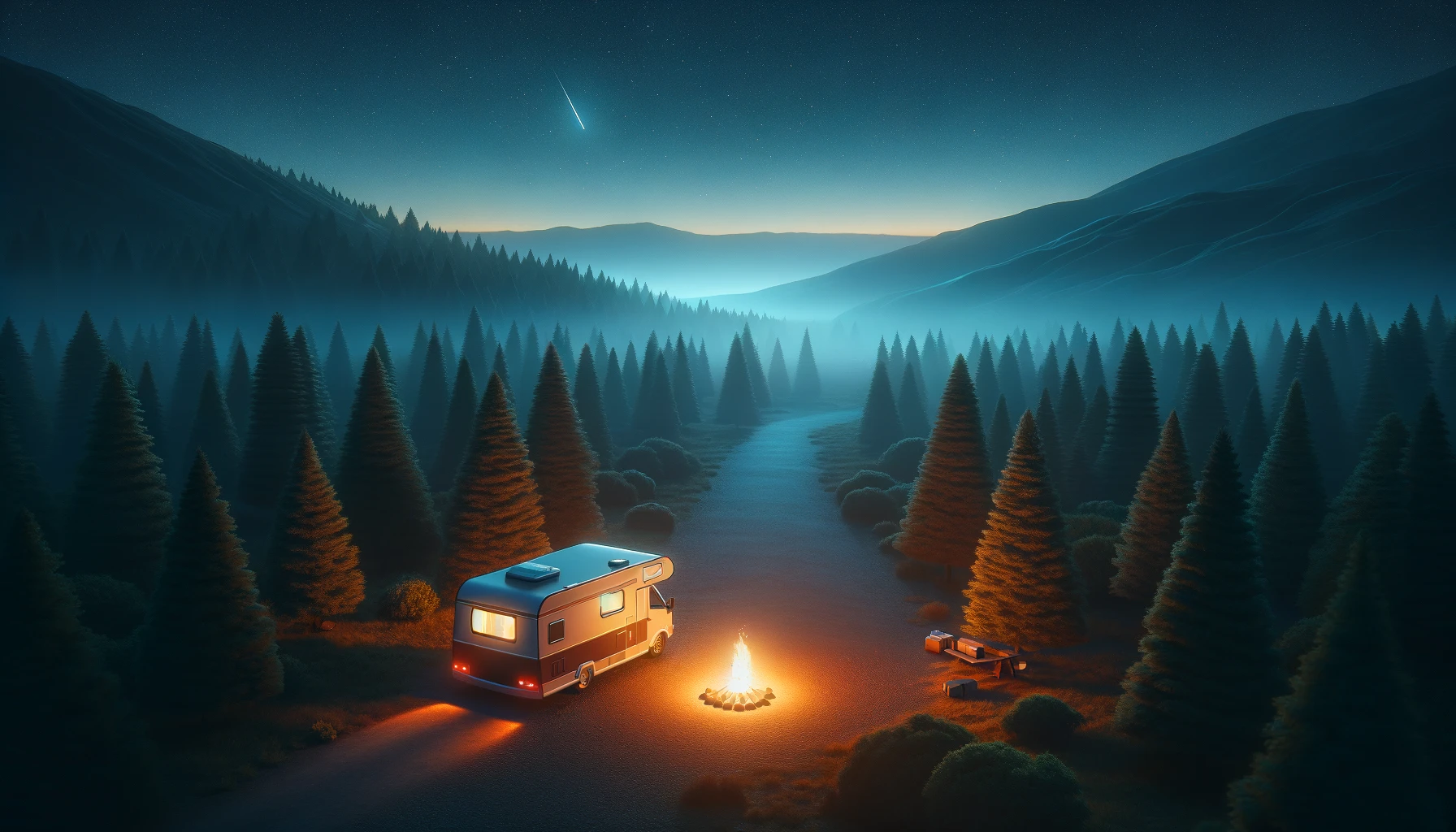
Most RVs aren’t air-tight. The cooktop has a vent that allows in air, while many RV windows contain weep holes at the bottom designed to permit condensation from the inside to drain away.
Unfortunately, these weep holes also allow smoke inside the trailer.
Keeping the RV doors and windows closed when there’s a campfire on can help keep most of the smoke out. Close all vents, and check whether there are any defective side seals, cracks, or gaps that need insulation.
Double pane windows are also a plus, as they seal better than regular windows.
3. Look for an Upwind Camping Spot
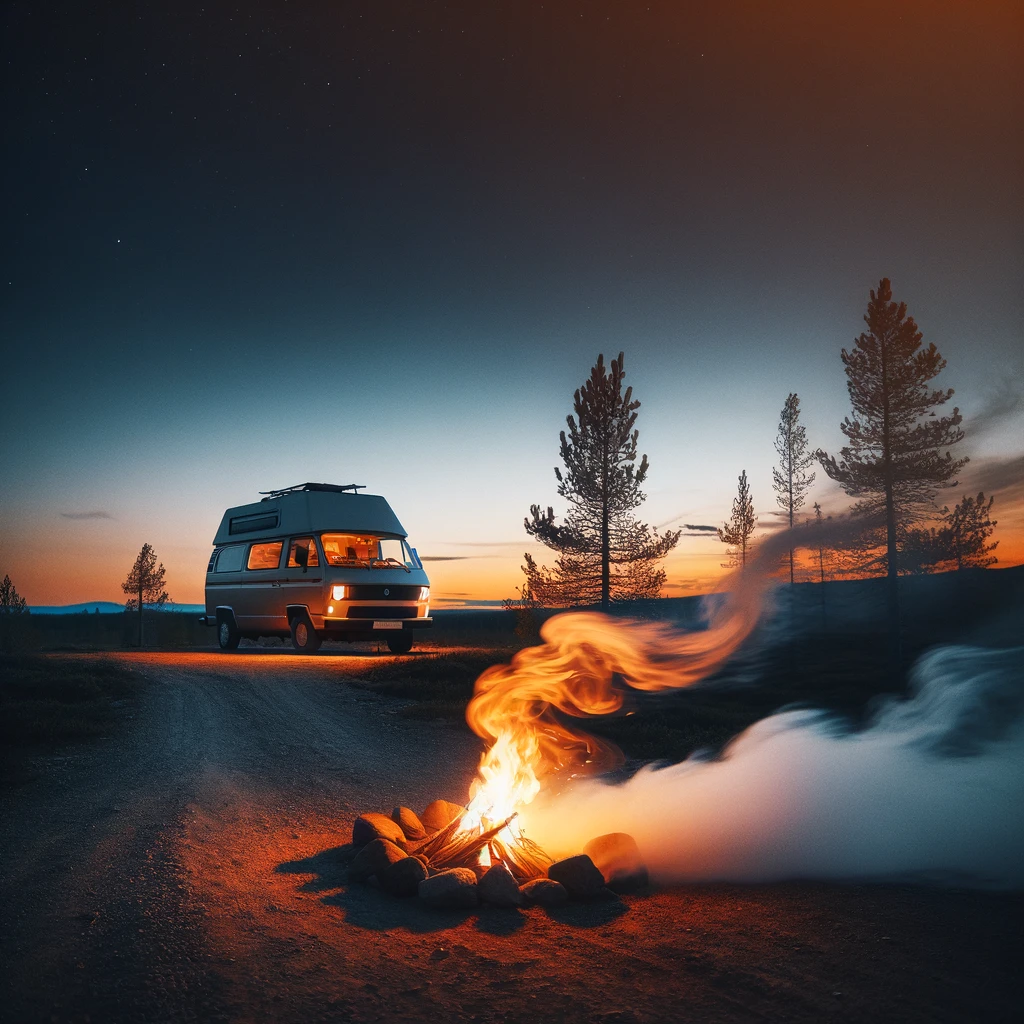
Being downwind of a smoky fire can be quite unpleasant.
If there’s steady wind, try to stay upwind of any raging campfires, and you’ll manage to avoid most of the fumes. Unfortunately, the wind tends to keep changing directions, and you might still end up with suffocating smoke inside your camper.
Also, most park sites tend to be quite close to each other, which can quickly fill your trailer with your neighbor’s campfire smoke. If you find smoke coming towards your campsite, try to move much further away or leave the area completely and look for a different campsite.
4. Use Innovative Fire Pits
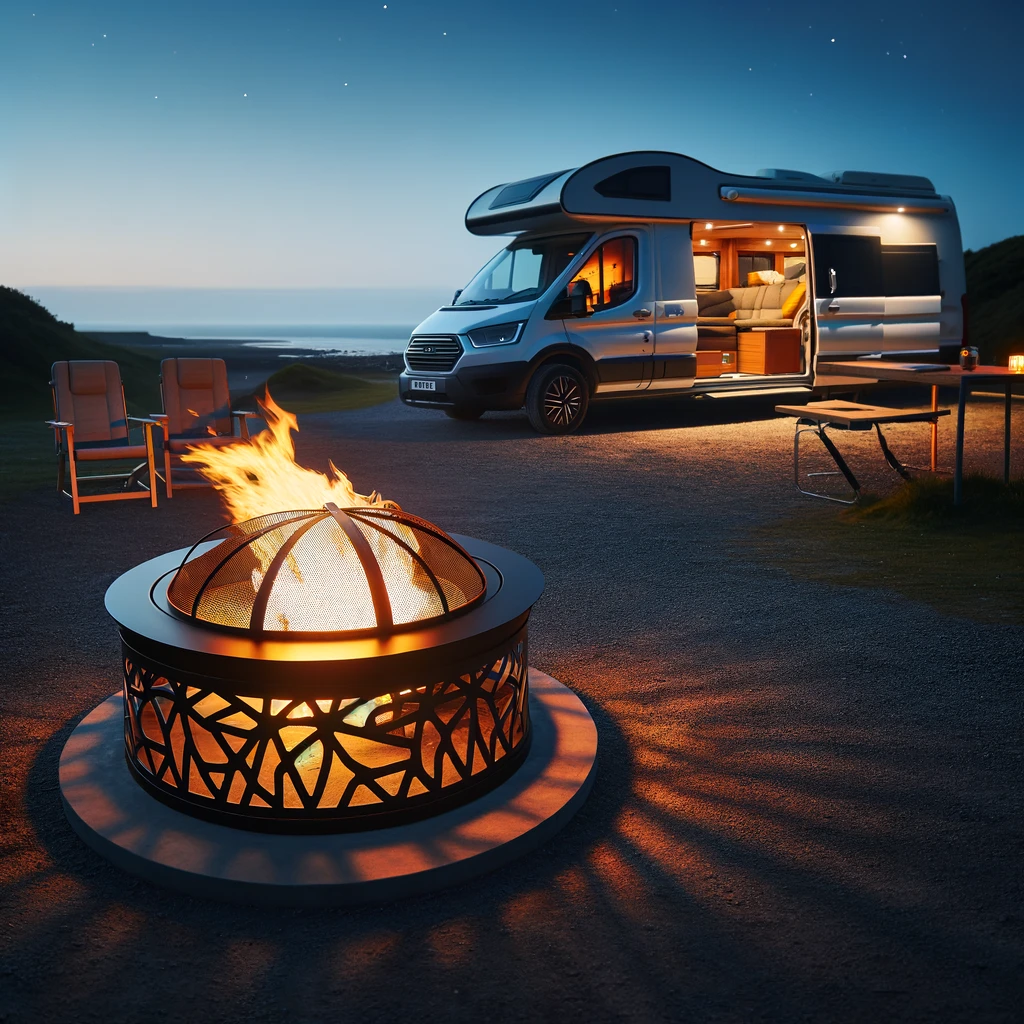
Innovative fire pits are smokeless stoves built to keep campfire smoke off your face and RV.
For instance, the Solo Stove Bonfire Fire Pit (available on Amazon.com) pulls in the air via vent holes located at the bottom in the combustion process. This air movement fuels the fire and also lets out hot air through vent holes on top of the burn chamber.
The process results in a hotter fire with hardly any campfire smoke. Besides, the unique fire pit is portable, so you can move it to a more convenient spot, away from your camper.
5. Consider Using a Commercial Fire Log
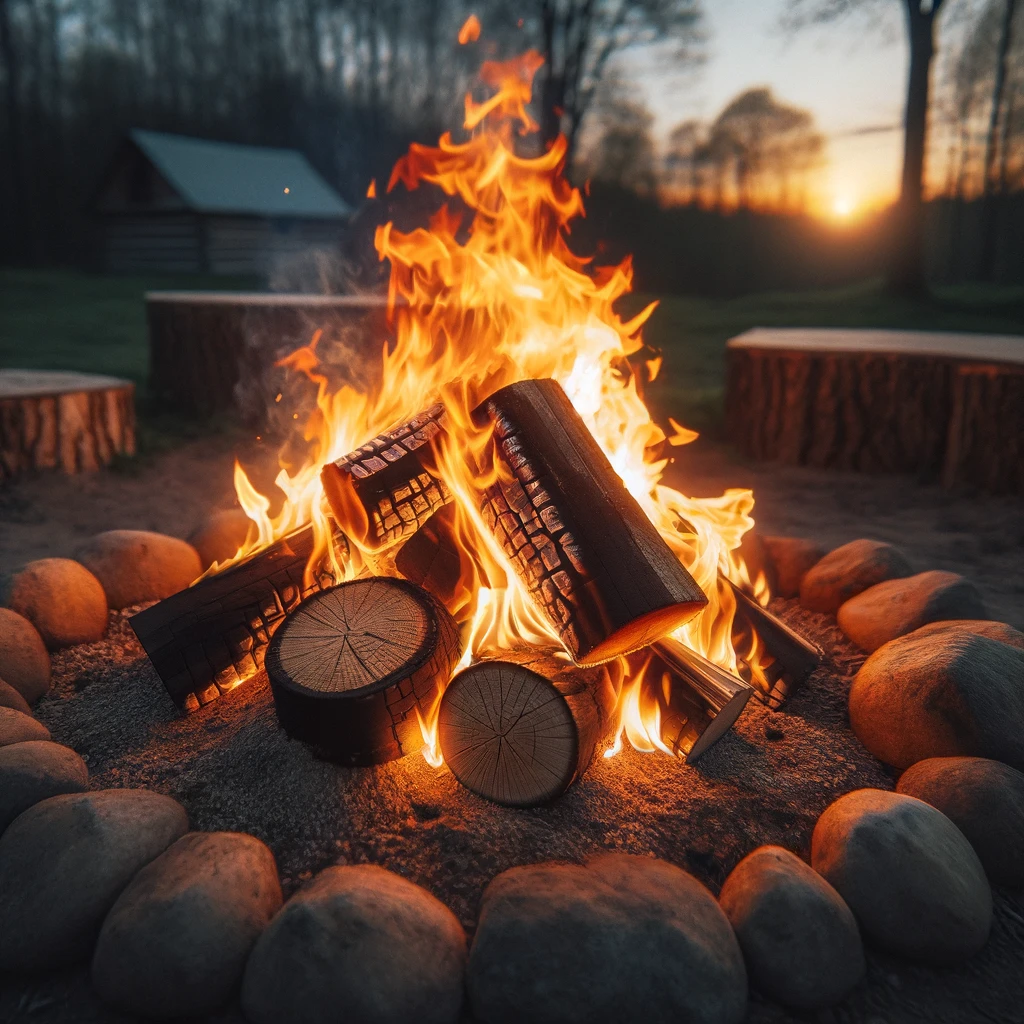
Commercial fire logs produce less smoke than traditional wood, so this option might be worth considering as an alternative fuel for your campfire. However, though they’re easy to light, eco-friendly, and burn steadily for up to 3 hours, artificial fire logs are pricey and don’t produce as much heat as wood.
They also don’t generate the much-liked smoky wood smell.
Artificial fire logs are mostly made from recycled materials like sawdust, waxes, and cellulose.
6. Stop Your Campfire From Producing Smoke
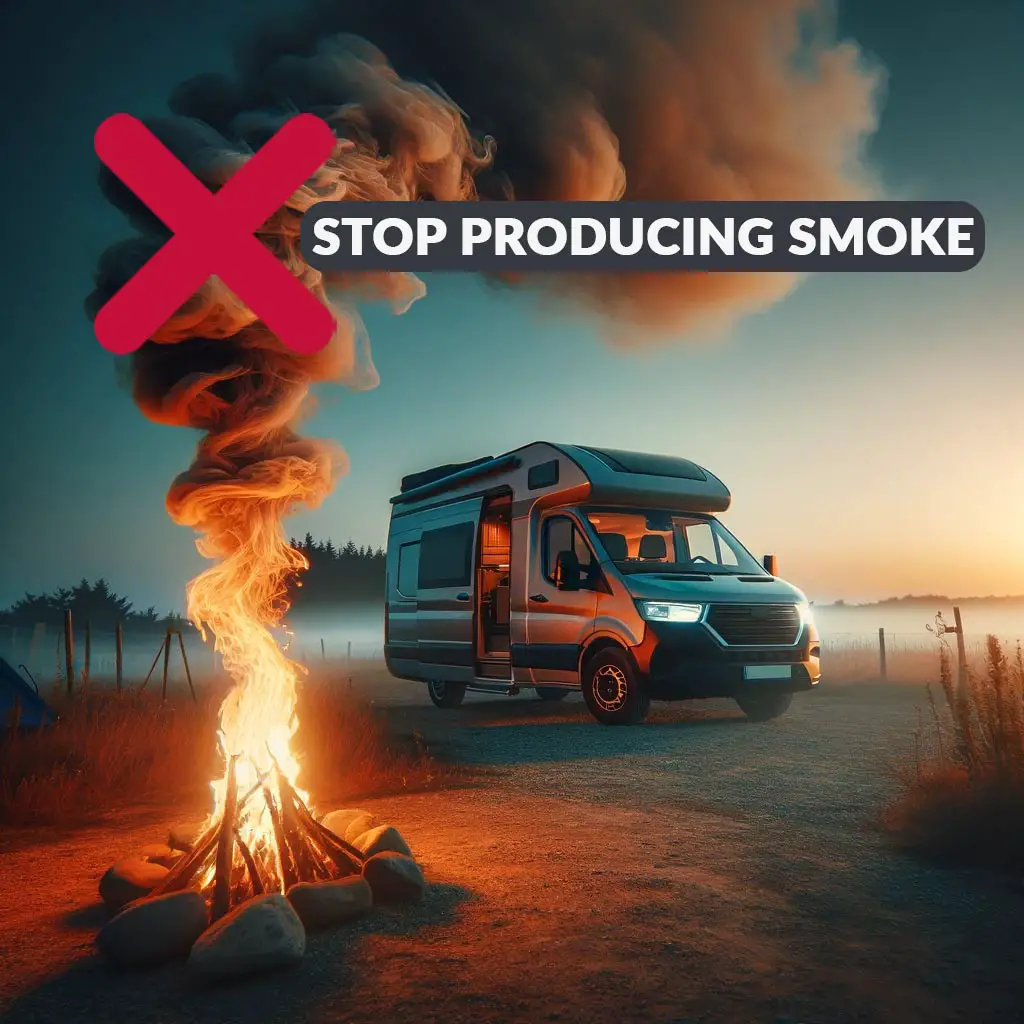
One effective way to keep campfire smoke from your motorhome is to stop your campfire from smoking. This might sound like an impossible feat since all fires typically produce smoke, but there are ways to minimize the amount of smoke produced by your outdoor fire.
Try the following helpful tips:
- Allow air circulation: Arrange your firewood in a way that encourages greater airflow. Doing so allows for complete combustion and prevents smoldering, subsequently reducing smoke. Simply put, a hotter fire equals less smoke.
- Only burn dry firewood: Damp wood contains high moisture levels, hence producing more smoke. In addition, hardwoods like ash, maple, and oak burn cleaner than softer woods like pine.
- Avoid greenwood: This is recently cut wood that typically contains lots of moisture, hence producing more smoke.
- Avoid burning debris: This includes grass, pine needles, leaves, plastic, tree bark, or pine straw, which cause your fire to generate more smoke.
- Make a smaller fire: Instead of making a huge fire, split your logs, build the fire slowly, and keep adding a log at a time to keep it going. Note that fueling your fire too fast by adding lots of wood will make it harder for the fire to burn, which ends up producing more smoke.
7. Choose Camping Grounds That Don’t Allow Wood Fires
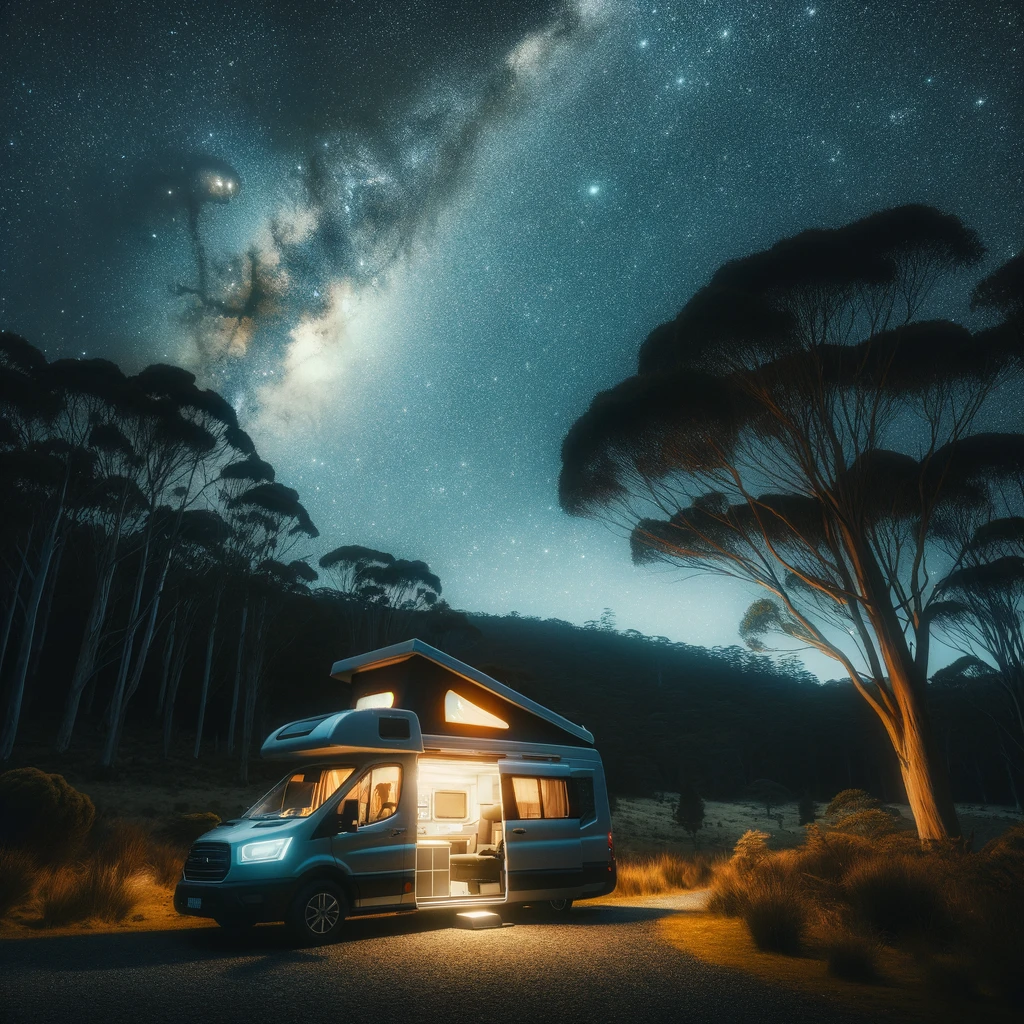
Another option is to choose to camp in camping grounds that don’t allow wood fires or RV parks that don’t allow individual campfires. Some of the campgrounds located inside city limits don’t permit open burning, while some upscale adult facilities or private parks might not allow campfires.
If you choose to camp in such places, you won’t have to deal with any campfire smoke entering your RV. This can be a viable option for people with allergies or health conditions like asthma.
Final Thoughts
A crackling campfire takes a camping adventure to the next level. Sitting in front of the relaxing warmth with friends or family is also highly enjoyable and an exciting way to spend your evenings.
To avoid spoiling this wonderful experience, ensure that smoke from your campfire doesn’t get inside your RV by using the helpful tips shared here.
